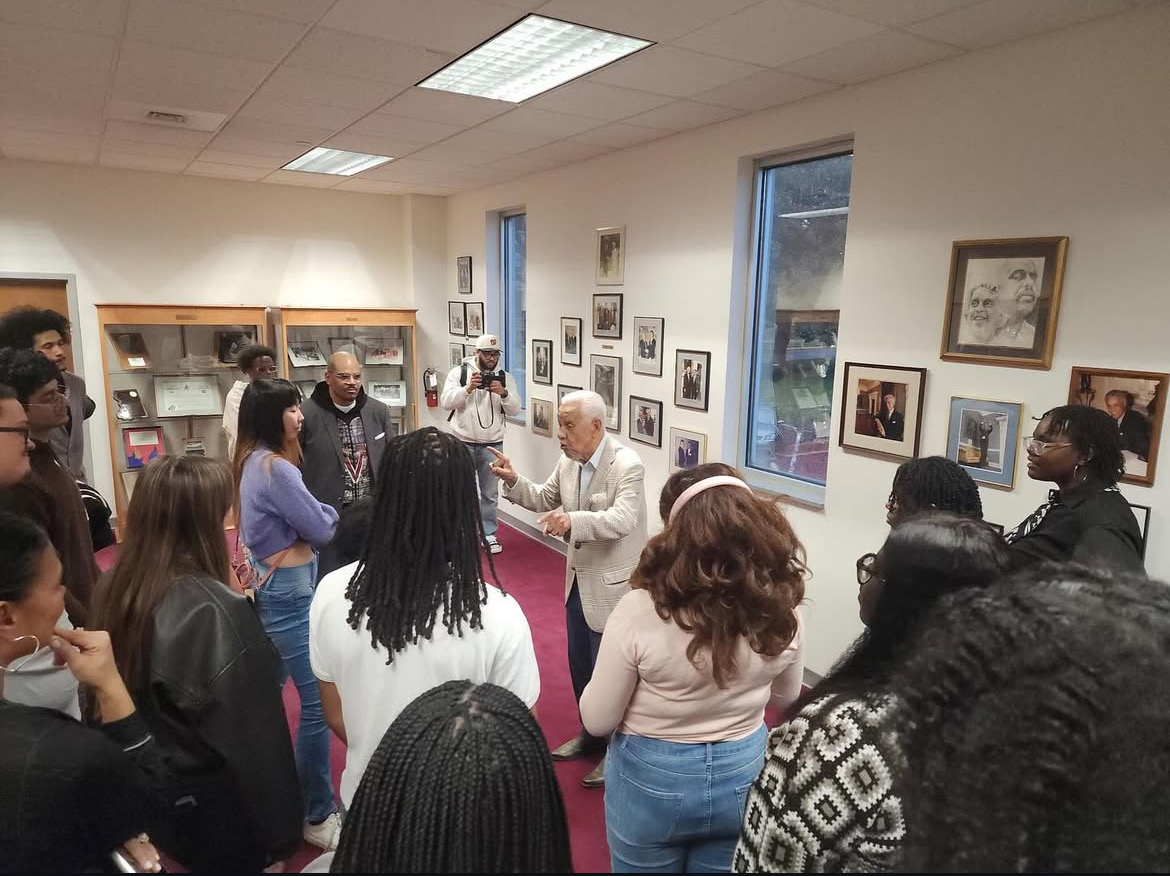On Sunday, Oct. 20, a freight train traveling through Northfield made a sound that measured 117 decibels, seven decibels over the limit to produce a sonic boom. The train, carrying turkey manure in such a strategic route relative to the wind at that time, infecting all of Carleton’s campus with the smell, sounded its horn as a warning measure. It turns out that the typical train horn heard across campus is regular, and the trains on this line have an extra stronger horn for emergencies. “There was an albino squirrel just sitting there on the tracks,” engineer Connie Ducter explained. “And because I know that the albino squirrel population has been dwindling in past years, I just couldn’t risk running over that strange little fella.”
Fallout on campus was severe, with the ear-splitting sound reportedly knocking people off of scooters and unicycles, scattering a pile of grilled chicken across the LDC floor and causing History Professor William North to pause his office hours session on 4th libe for a record-shattering 1.8 seconds to adjust his glasses — which had become crooked due to the pulsating sound waves. He later sent out a sincere apology to his students for the interruption, promising it would never happen again.
Despite all of the reports of destruction, the sound-barrier breaking train horn seems to have had no effect on the visitors of Skinner Memorial Chapel. There were over 40 students, staff and community members present at the Chapel to experience a sound bath, which is an immersive meditation experience that involves many different soundscapes.
“Noise? What noise,” inquired Maddy Tation, an attendant at the event. “I mean, the sound bath was pretty intense, but I just thought that horn was a part of the leader’s whole setup. I was like ‘Wow, she can really make a gong sound like that? That’s so cool!’”
Even more inexperienced sound bath meditators did not sense anything different during the sonic boom. “I have no idea what you’re talking about, that sound bath was the best nap of my life,” a parent attending the event said. Other parents reported thinking the train horn was simply their spouse snoring, and students with parents in attendance claimed the sound came from their parent’s phone, as they do not know how to turn the ringer off, and always forget to turn their phone volumes down after taking calls in public.
While no one on campus was seriously harmed (besides all of the poor chickens who died for nothing), those who were in the chapel at the time of the blast came out completely unscathed, physically and emotionally. This phenomenon has led to a new research project co-sponsored by the Physics Department, the Biology Department, the Cognitive Sciences Department, the Religion Department and the Office of the Chaplain to attempt to explain how the Chapel could have possibly been shielded from the sound waves, or if the power of the sound bath itself could have protected the attendants’ minds, ears, or even souls. The research will be 85% funded by the biology and physics department, as part of a new college endeavor towards equity between departments.
“This is an incredibly important piece of research to conduct at this moment,” said Trey En-Horne, the lead physics professor on the initiative. “Sure, it was a train horn that broke the sound barrier this time, but what’s next? We’re lucky that the train was so far away. If another barrier-breaking noise, like a laugh on 4th libe or a collective groan in front of Sayles after reading the Clap were to occur, we really need to study how we can protect ourselves.”
Though they employ no professors or engineers, the Office of the Chaplain has been a critical player in the coordinated response to the sonic boom. “What we have learned about the power of sound baths is a wonderful thing, and really speaks to our power as an office on campus,” College Chaplain Rev. Schuyler Vogel remarked. “We at the chapel have always been known as the conscience of the College, but who knew we would be the earplugs of the College too? Our sound baths have historically been only once per term. But as we have learned about their audio-blocking power, we have begun to schedule them every time a townhouse party is advertised to the whole campus, as we feel called to serve our community and prevent them from being hurt by the eardrum-shattering marching sounds of mobs of freshman on the way to the row.”












